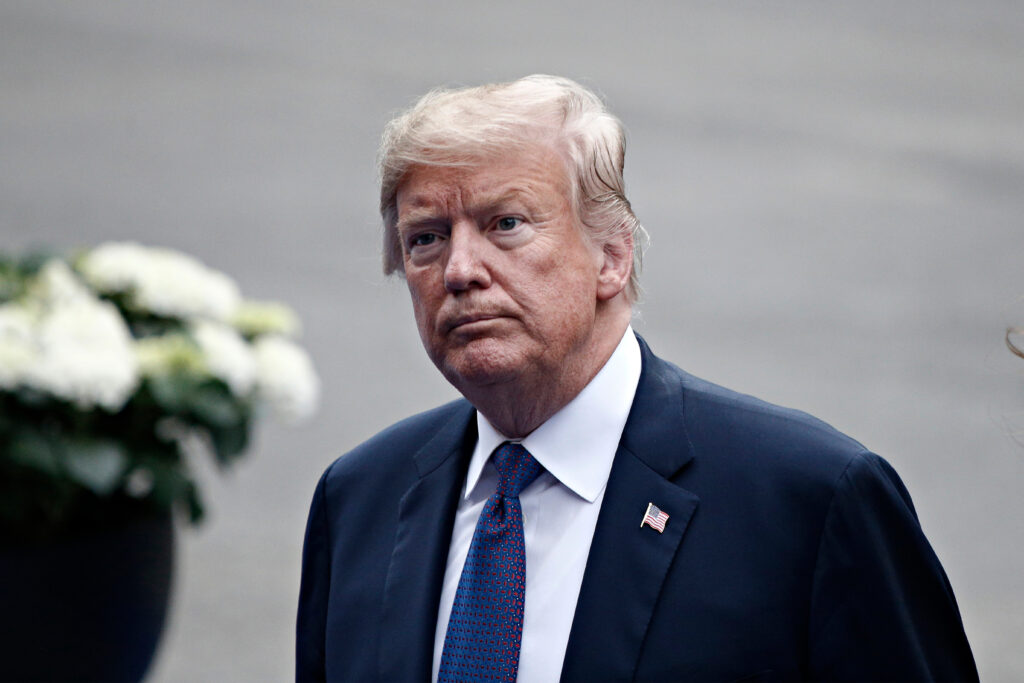Tensions between the United States and Iran have escalated sharply after former President Donald Trump issued a direct warning to Tehran. In an interview with NBC, Trump made it clear that if Iran refuses to negotiate a new nuclear deal, military action could follow. “If they don’t make a deal, there will be bombs,” he stated. This tough stance has raised concerns about renewed conflict in the Middle East. Trump also suggested imposing secondary sanctions—penalties on countries that continue to trade with Iran, a strategy he used during his first term to pressure Tehran economically.
Iran Refuses Direct Talks But Keeps Diplomatic Door Open
Iranian President Massud Pezeshkian responded by rejecting any direct negotiations with Trump’s administration. During a cabinet meeting, Pezeshkian confirmed that Iran had received a letter from Trump through Oman but had declined direct talks. However, he hinted that indirect diplomacy could still be an option if the U.S. acknowledged past mistakes and worked to restore trust.
Diplomatic backchannels between the two nations are not new. Oman has played a mediator role in the past, facilitating communication between Washington and Tehran. While Iran remains open to indirect talks, its leadership has made it clear that any meaningful dialogue would require the U.S. to demonstrate good faith—something Tehran believes has been lacking since Trump pulled out of the 2015 nuclear agreement.
Both Sides Intensify Rhetoric
The exchange of warnings has led to increased concerns over the possibility of a military confrontation. Earlier this month, Trump sent a letter to Iran’s Supreme Leader Ayatollah Ali Khamenei, presenting two options: strike a deal or face military action. Iran responded with its own warnings. Parliamentary Speaker Mohammad Qalibaf made a bold statement, declaring that any attack on Iranian soil would set the region on fire. “A single spark could ignite the ammunition depot,” he warned, referencing U.S. military bases in the Middle East as potential targets.
The Iranian military has also conducted recent war games, showcasing its missile capabilities. Analysts believe this was a strategic move to send a message that Iran is prepared to defend itself if attacked. The U.S., meanwhile, has increased its military presence in the Persian Gulf, a move seen as both a deterrent and a preparation for potential escalation.
Sanctions Are Crippling Iran’s Economy
Since Trump withdrew the U.S. from the 2015 nuclear deal in 2018, Iran has gradually stopped following the agreement’s restrictions. In response, the U.S. has imposed heavy economic sanctions. These measures have had severe consequences for Iran’s economy. Inflation has soared, and the Iranian rial has lost much of its value against the U.S. dollar. The country’s oil exports—once a key source of revenue—have plummeted, further deepening the crisis.
Despite these challenges, Iran has managed to maintain some economic stability by increasing trade with China, Russia, and other non-Western nations. However, U.S. officials are considering further sanctions aimed at pressuring these countries to cut ties with Tehran. Trump’s suggestion of secondary sanctions could further isolate Iran, making it even harder for the nation to sustain itself economically.
Will Diplomacy Prevail, or Is Conflict Unavoidable?
Many experts believe that diplomacy is the only path to avoiding a larger conflict. However, the path forward remains unclear. Iran wants the U.S. to ease sanctions before agreeing to any talks, while Trump insists on a new deal that imposes stricter limits on Iran’s nuclear program. This deadlock makes negotiations difficult.
Iran’s nuclear program has been another major point of contention. While Tehran insists that its nuclear activities are for peaceful purposes, Western intelligence agencies suspect Iran is working toward developing nuclear weapons. This suspicion is a key reason why the U.S. and its allies continue to push for a tougher deal.
A Dangerous Road Ahead
With both nations refusing to back down, the risk of escalation is growing. If Iran accelerates its nuclear activities, the U.S. may respond with force. On the other hand, if Trump proceeds with military action, Iran could retaliate, drawing the entire region into chaos.
For now, the world watches as tensions rise between Washington and Tehran. Whether diplomacy prevails or conflict erupts remains to be seen. What is clear, however, is that the stakes are higher than ever.
